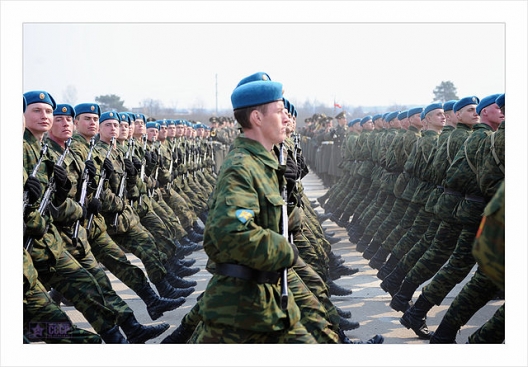 Russian military drills near neighboring Finland have provoked concern that northern Europe may be the next focus of Moscow’s seemingly renewed appetite for redrawing its borders.
Russian military drills near neighboring Finland have provoked concern that northern Europe may be the next focus of Moscow’s seemingly renewed appetite for redrawing its borders.
Troops and jet fighters from all four military regions of Russia were deployed Sunday about 150 miles east of the Finnish border, according to the English-language newspaper Finnbay. The Russian defense ministry said in a statement that the exercises were pre-planned and that more than 50 fighter pilots took part.
Finland was part of the Russian empire for 108 years, from 1809 until Russia’s withdrawal from World War I in 1917. The Karelia region, where the war games are taking place, straddles the Finnish border and has historically been a heavily militarized zone for Moscow.
But experts say that while Moscow appears to have seized another opportunity to flex its muscles, the threat of an armed invasion is very low. . . .
Andrew Kutchins, a senior fellow at the Center for Strategic and International Studies, said the proximity of the drills had made the alarm most palpable in Finland.
“The people of Helsinki are nervous,” he said. “What Putin is doing is sending shock waves through Europe.” However, Kutchins added that the likelihood of immediate military action appeared “very far-fetched. . . .”
This anxiety was heightened Sunday after one of Putin’s closest former advisers told the Swedish newspaper Svenska Dagbladet that the Kremlin would seek “historical justice” by reclaiming Finland and ex-Soviet countries as part of an enlarged Russian Federation.
“Putin’s view is that he protects what belongs to him and his predecessors,” wrote Andrei Illarionov, according to a translation by the Moscow Times.
“Parts of Georgia, Ukraine, Belarus, the Baltic states and Finland are states where Putin claims to have ownership,” said Illarionov, who is now a senior fellow at the Washington, D.C.,-based Cato Institute.
Illarionov, who was chief economic adviser to Putin until 2005 and is described by the Moscow Times as an outspoken Kremlin critic, said Putin could argue the Communist revolution of 1917 was a “treason against national interests.”
“It is not on Putin’s agenda today or tomorrow,” Illarionov added. “But if Putin is not stopped, the issue will be brought sooner or later.”
Image: "The people of Helsinki are nervous" (photo: Михаил Михин)
